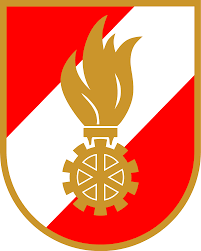General information
How is Austria
politically organised?
Can I become
an Austrian?
My rights and obligations as a resident in Austria?
Mobility
Emergency numbers
in Austria
Offices & authorities for
the district of Kufstein
Websites &
Apps
Financial
Waste & waste disposal
How is Austria politically organised?
Austria is a parliamentary democracy and has a constitution. Austria consists of 9 federal states, each of which has its own state government with its own parliament (Landtag). Certain areas are regulated by the federal government, some by the federal states. The highest representative of the state is the Federal President, who is elected for a term of 6 years. Parliament consists of the National Council and the Federal Council. They pass laws. The Federal Chancellor chairs the government. Austrian citizens (aged 16 and over) with their main place of residence in Austria may vote from the age of 16.
Can I become an Austrian?
If you were born in Austria, you do not automatically have Austrian citizenship, so it is not a birthright. At least one parent must be Austrian for the child to be granted citizenship. Then it doesn’t matter where in the world you were born. You can also apply for Austrian citizenship. To do so, you must fulfil several requirements, which you can read about here. Here you can also find further information on the application and approval process, as well as the costs and granting of citizenship.
My rights and obligations as a resident in Austria?
- Right to equality of all citizens before the law
- Right to life
- Right not to be subjected to inhuman or degrading treatment or punishment (torture)
- Right to personal freedom
- Prohibition of slavery and serfdom, forced and compulsory labour
- Right to freedom of movement of persons and assets
- Right to inviolability of property
- Right to freedom of expression
- Right to data protection
- Right to respect for private and family life
- Right to marry and start a family
- Right to freedom of association and assembly
- Right to freedom of belief and conscience including the freedom to practise religion
- Right to proceedings before the statutory court
- Right to a judicial decision in civil and criminal matters and to a fair trial, as well as to the rule of law Minimum standard in criminal proceedings
Obligation to register
As a resident of Austria, you are obliged to register with various authorities and offices. Where exactly? You can find out under Registering your place of residence.
Tax liability
You have to pay various taxes as an employee, employer
or employer organisation. Resident of Austria to the tax office.
Detailed information on this is available Tax liability.
Compulsory social insurance
Insurance is compulsory in Austria. This means that in Austria you must be covered by social insurance. For more information, see Social security obligations
Compulsory schooling
There is a general, 9-year compulsory education for children in Austria.
You can find more detailed information under Compulsory schooling.
Mobility
ÖBB: Austrian Federal Railways
Is the operator of most train routes in Austria and many night trains in Europe
www.oebb.at
Climate ticket: is an annual ticket for the whole of Austria or a single federal state
Senior Mobil: The joy of travelling knows no age limits
(help with train search / booking, at the ticket machine)
+43 664 88769857 (Kufstein)
senior.mobil@pv.oebb.at
www.oebb.at/seniormobil
Tyrol Transport Association
Is responsible for most buses and train routes in Tyrol
www.vvt.at
All available tickets can be found here.

Westbahn
Private railway company on routes between Munich and Salzburg, as well as Innsbruck and Vienna. Some ÖBB tickets are also valid here (Ask at the ticket counter before boarding)

Flixbus
Coach company across Austria and Europe
www.flixbus.at
Car/bike sharing
Providers in the region are e.g.,:
- VTT Regiorad (Kufstein & Ellmau)
- Beecar (Kufstein)
- FloMobil (Woergl)
- wemovenow (Innsbruck)
- Rail&Drive (various locations)
Vignette for motorways and dual carriageways
In Austria, you have to pay a toll in the form of a vignette to use motorways and motorways. The vignette is available to buy both as an adhesive vignette and as a digital vignette (online at least 3 weeks before use or at toll booths on the same day). In addition, a toll must be paid for some routes and tunnels, such as the Brenner motorway, Arlberg motorway or Tauern motorway.
You can find more information on sales points, validity period and prices of the vignette here: Vignette for motor vehicles up to 3.5 tonnes
An annual vignette for a car currently costs €96.40 (as of 2023).
In the “Wegfinder” app, you can find the best route from A to B, book and pay for many different modes of transport directly in the app.
Emergency numbers in Austria

112
Euronotruf (this emergency number is valid for the entire EU)
122
Fire brigade
133
Police
144
RescueMedical radio service … 141
Pharmacy service … 1455
Women’s helpline (of the City of Vienna) … 01 717 19
Women’s helpline … 0800 222 555
Innsbruck Child Protection Centre … 0 512 58 37 57
Telephone counselling … 142
Poison control centre … 01 406 43 43
Telephone health counselling … 1450
The following information is important when making a call
- Where did it happen?
- Who is calling?
- What happened?
- How many injured or sick people are there?
- What injuries or illnesses are present?
- Wait for questions and don’t hang up immediately!
Offices & authorities for the district of Kufstein
- Boznerplatz 1, 6330 Kufstein
- +43 5372 606-0
- bh.kufstein@tirol.gv.at
- www.tirol.gv.at/kufstein/
District court
- Georg Pirmoser-Str. 10, 6330 Kufstein
- +43 5 76014 3452
- www.justiz.gv.at/bg-kufstein/bezirksgericht-kufstein.2b1.de.
- Salurner Straße 7, 6330 Kufstein
- +43 5 909053310
- kufstein@wktirol.at
-
www.wko.at/service/t/
bezirksstellen/kufstein
- Oskar Pirlo Str. 13, 6330 Kufstein
- +43 50 904740
- ams.kufstein@ams.at
-
www.ams.at/regionen/tirol/
geschaeftsstellen/ams-kufstein
Tax office Kufstein
- Oskar Pirlo Str. 15, 6330 Kufstein
- +43 50 233233
- info@finanz.at
- www.finanz.at/finanzamt/kufstein-schwaz/
- Kronthaler Str. 4, 6330 Kufstein
- +43 5 0766-183712
- kufstein@oegk.at
- www.gesundheitskasse.at
Apps
Digital Office
With the “Digitales Amt” app, you can carry out administrative procedures online, it is possible to sign documents electronically and ID cards (e.g., driving licence) can be saved and presented digitally in the app. The following steps are necessary to apply for the Digital Office on your smartphone:
- Install the “Digital Office” app.
- Open the “A-Trust” website (www.a-trust.at) with a second device (e.g., laptop),
Follow the instructions (enter ID card number), select user name & signature password - Give the required consent on the A-Trust website.
- Open pre-registration in the “Digital Office” app.
- Scan the QR code shown on the “A-Trust” website on the second device using the “Digitales Amt” app
(pre-registration is then complete). - Visit a registration authority for personal identity verification.
Bring along: current passport photo, Austrian identity document, smartphone - Follow the further instructions of the staff on site.
Here you can find more information about registering in the “Digital Office” app.
FinanzOnline
FinanzOnline is a digital platform on which you can submit all financial matters, such as tax returns, digitally and therefore all communication with the tax office takes place online. You can find more information on this and how to register here: www.finanz.at
ELGA
The digital health record ELGA is available to all people receiving care in the Austrian healthcare system. This is where you can browse, for example, medical findings or vaccination records.
Financial
How do I pay in Austria?
Tax liability
As an employee, employer and resident of Austria, you have to pay various taxes to the tax authorities. These include, for example, income tax, wage tax and VAT. You can read about all other taxes here.
Amount of income tax
One important tax is income tax, which must be paid as soon as you receive an income of more than €11,693.00 gross per year (as of 2023). The amount of income tax depends on the amount of income and is staggered. You can find a detailed overview here: Income tax table
For employees, the tax is automatically deducted from their salary. Self-employed persons must make an advance payment every 3 months in the amount of the expected income tax.
Graduated means that income tax increases with the level of salary.
Reclaiming income tax
By voluntarily equalising your income tax, you can get back any overpaid taxes from the state.
Where? Under Finanzonline.
This is a financial portal. You can get access data either from the tax office or from the Digital Office. There you will also find explanatory videos and instructions on how to make an employee tax assessment. This takes about 20 minutes, depending on the extent. You have not submitted your employee tax assessment by the end of June next year? Then it will be calculated automatically. The disadvantage: medication or advertising costs reduce the wage tax base. If you do not declare them, they will not be taken into account.
You can find more information on this under Employee tax assessment.
Please note: First make a test application online to calculate in advance how much money you would get back or pay. If you have to pay more money than you would get back, you should waive the employee tax assessment for this year. This will then be calculated automatically by the tax office. Solltest du mehr Geld zahlen müssen, als du zurückbekommen würdest, solltest du für dieses Jahr auf die Arbeitnehmerveranlagung verzichten. Diese wird dann vom Finanzamt automatisch berrechnet.
Advice on taxes
There is a lot more information on the subject of finance in the tax office handbook (available in English and German).
If you have any questions about finances, taxes and duties, you can also contact the citizens’ advice centre of the respective tax office. In the KUUSK region, the nearest tax office is in Kufstein:
Tax office Kufstein
- Oskar Pirlo Str. 15, 6330 Kufstein
- +43 50 233233
- Appointment necessary
Tips and tricks for tax advantages for families can be found here: The tax book
The Chamber of Labour offers free webinars on income tax equalisation. The best place to find out more is the Chamber of Labour website.
The Chamber of Labour also offers its members advice on tax savings days.
Waste & waste disposal
Waste avoidance, waste separation and waste disposal are important. Ideally, waste should not be produced in the first place. For example, you can use reusable packaging, repair things or rent them.
There is also waste that you cannot avoid. Please separate plastic, paper, cardboard, metal, glass and organic waste. These can be recycled, i.e., reprocessed. All other waste that cannot be collected separately belongs to
residual waste. This will then either be collected separately or must be disposed of in the appropriate waste bins near your home.
Further information can be found here: Waste
Further information
Working in Austria
How do I find a job in Austria? How do I apply for a work permit and what is the red-white-red card?
Children & Education
What childcare options are there in Austria? Where can I continue my education or learn German?
Housing & Immigration
How do I register myself and my residence in Austria? How can I bring my family to Austria?
Family & Social Affairs
What do I need to consider during pregnancy? Is there any financial support from the state?
Health & Insurance
How can I insure myself? How do I apply for an e-card and what do I need to know about the healthcare system?
Counselling centres
Who do I turn to with problems and questions? Which regional advice centres are there?
Regional recreational activities
What leisure activities are available in the region and the surrounding area? Are there any special offers?
